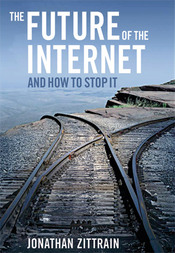I enjoy replaying this vintage gem every now and then — Malcolm X debating at Oxford University in 1964. In this classic video, you get a good feel for Malcolm X’s presence and message, not to mention the social issues that were alive during the day. You’ll hear X’s trademark claim that liberty can be attained by “whatever means necessary,” including force, if the government won’t guarantee it, and that “intelligently directed extremism” will achieve liberty far more effectively than pacifist strategies. (He’s clearly alluding to Martin Luther King.) You can listen to the speech in its entirety here (Real Audio), something that is well worth doing. But I’d also encourage you to watch the dramatic closing minutes and pay some attention to the nice rhetorical slide, where X takes lines from Shakespeare’s Hamlet and uses them to justify his “by whatever means necessary” position. You’d probably never expect to see Hamlet getting invoked that way, let alone Malcolm X speaking at Oxford. A wonderful set of contrasts.
“I read once, passingly, about a man named Shakespeare. I only read about him passingly, but I remember one thing he wrote that kind of moved me. He put it in the mouth of Hamlet, I think, it was, who said, ‘To be or not to be.’ He was in doubt about something—whether it was nobler in the mind of man to suffer the slings and arrows of outrageous fortune—moderation—or to take up arms against a sea of troubles and by opposing end them. And I go for that. If you take up arms, you’ll end it, but if you sit around and wait for the one who’s in power to make up his mind that he should end it, you’ll be waiting a long time. And in my opinion, the young generation of whites, blacks, browns, whatever else there is, you’re living at a time of extremism, a time of revolution, a time when there’s got to be a change. People in power have misused it, and now there has to be a change and a better world has to be built, and the only way it’s going to be built—is with extreme methods. And I, for one, will join in with anyone—I don’t care what color you are—as long as you want to change this miserable condition that exists on this earth.”
Related Content:
Free Online Shakespeare Courses: Primers on the Bard from Oxford, Harvard, Berkeley & More
Hear Allen Ginsberg’s Short Free Course on Shakespeare’s Play, The Tempest (1980)
James Baldwin Bests William F. Buckley in 1965 Debate at Cambridge University
Albert Einstein Called Racism “A Disease of White People” in His Little-Known Fight for Civil Rights
 Lawrence Lessig calls Jonathan Zittrain’s book “Absolutely required reading.” Cass Sunstein says it’s “Absolutely essential reading.” And Lawrence Tribe declares that it is “The most compelling book ever written on why a transformative technology’s trajectory threatens to stifle that technology’s greatest promise for society.”
Lawrence Lessig calls Jonathan Zittrain’s book “Absolutely required reading.” Cass Sunstein says it’s “Absolutely essential reading.” And Lawrence Tribe declares that it is “The most compelling book ever written on why a transformative technology’s trajectory threatens to stifle that technology’s greatest promise for society.”
